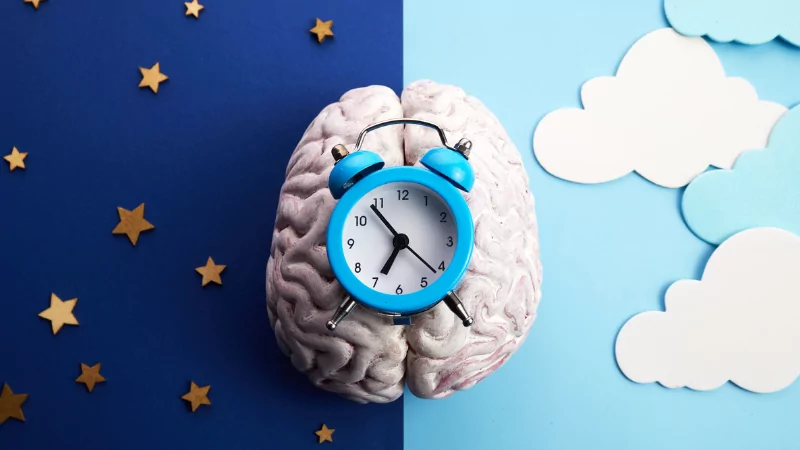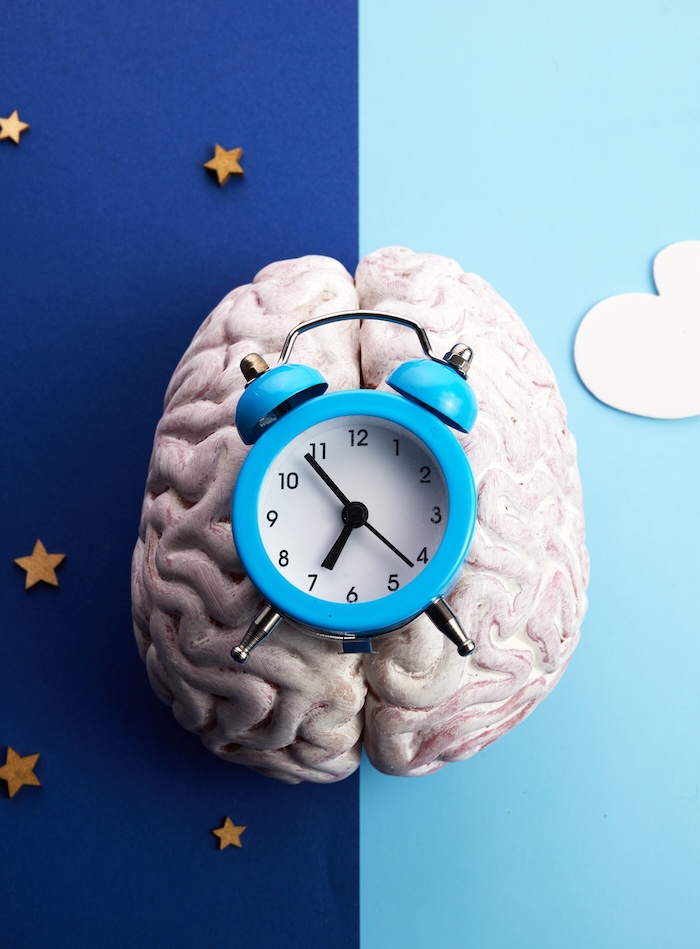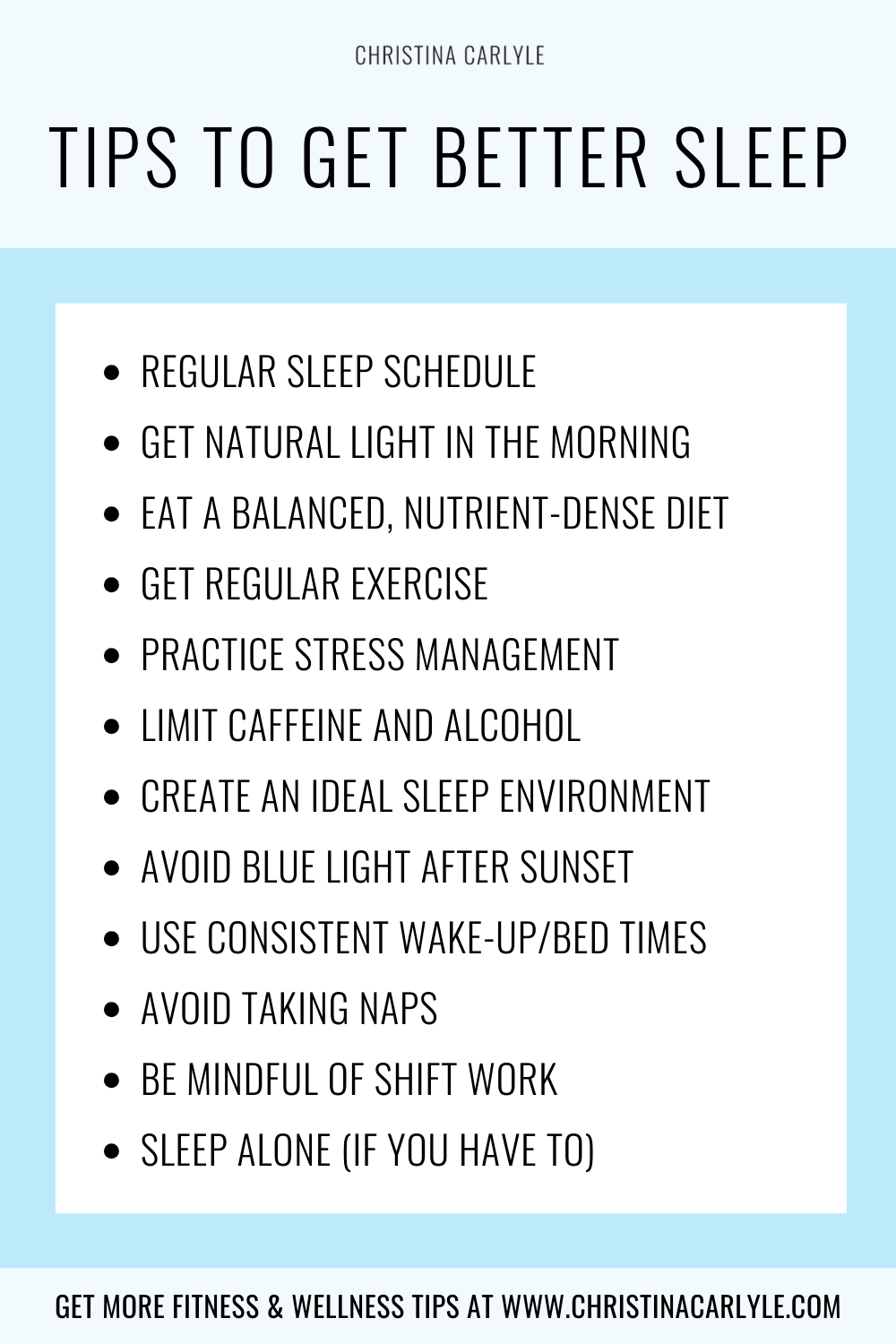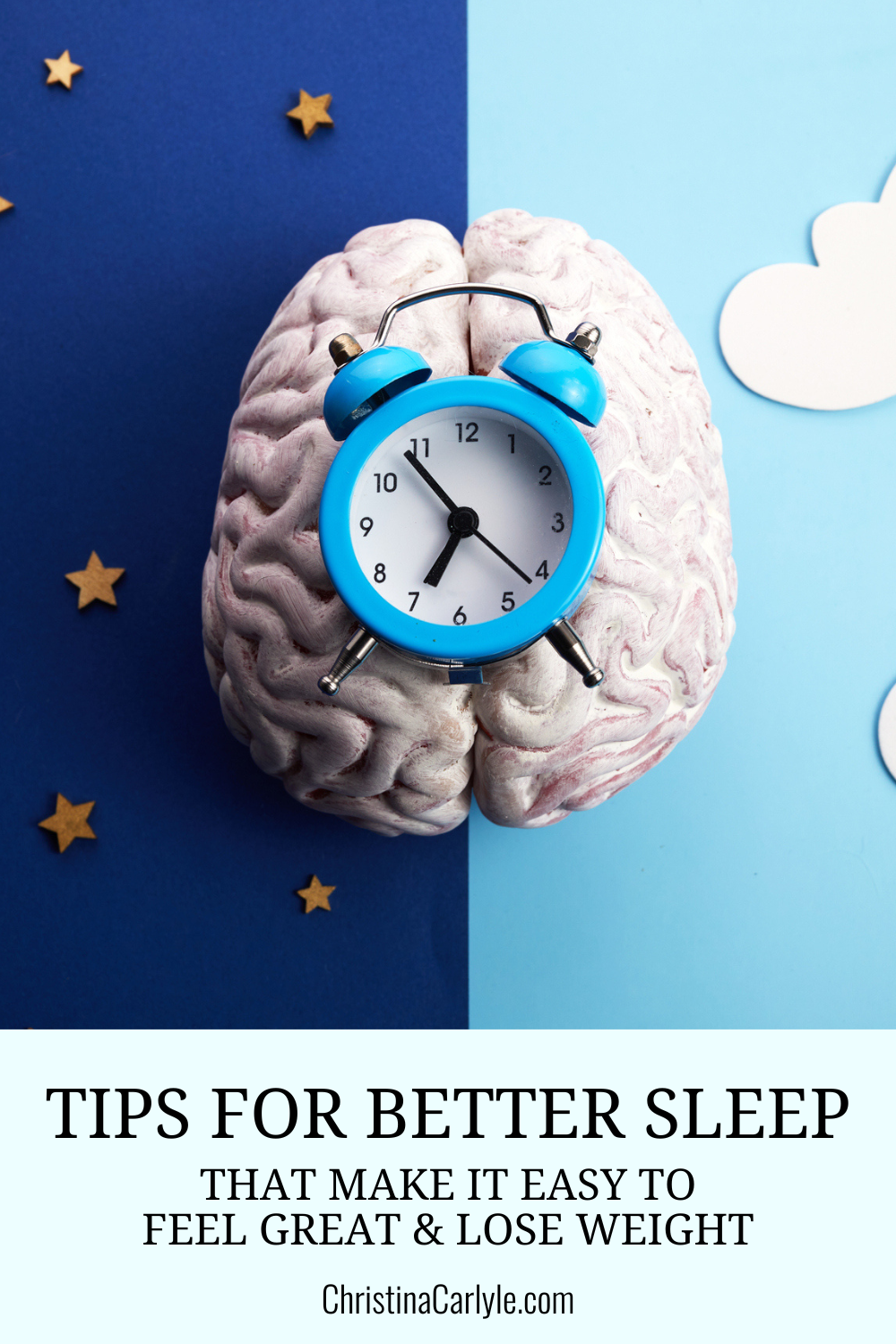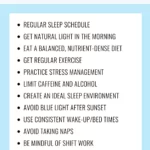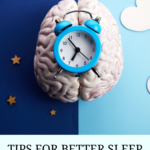Last Updated on March 7, 2024
Need tips for better sleep? You’re in the right place!
Ever had a bad night of sleep and felt terrible the next day? A bad night of sleep doesn’t just affect your energy. Sleep has a direct impact on your physical health, mental health, and weight. Sleep is SO important to maintain a healthy, fast metabolism.
I have a TON of clients that struggle with sleep, too. But they don’t realize how their poor sleep quality (and quantity) sabotages their health and fitness goals.
That’s why I’m sharing the best tips for better sleep so you can get happy, healthy, and fit.
How Sleep Affects Health, Weight, and Mood
First, let’s dig into how sleep affects health & weight. Once you know how damaging lackluster sleep is, you’ll be more motivated to use my tips for better sleep. 😉
Here are the most common ways bad sleep can have significant negative effects on your physical health, mental health, and ability to lose weight.
Weakened Immune System: Your body repairs damage and recovers during sleep. Inadequate sleep prevents the body’s ability to heal and can compromise your immune system, making you more susceptible to illnesses, infections, and diseases. Sleep can modify the immune system function by inducing changes in the hypothalamus-pituitary-adrenal axis and the sympathetic nervous system. In turn, the circadian rhythm of hormones such as cortisol and adrenaline becomes imbalanced making it even harder to sleep. The more sleep is disrupted the more immune function decreases causing a decline in metabolism, mood, and health.
Cardiovascular Health: Poor sleep is associated with an increased risk of heart disease, high blood pressure, and stroke. A New England Journal of Medicine study showed that there’s up to a 24% increase in the risk of a heart attack on the Monday after the springtime change when we ‘Spring Forward’ and lose an hour of sleep. This study looked at the data from a Swedish national heart attack registry and discovered that the rate of heart attacks was considerably higher in the days following the time change compared to other times of the year. (Janszky I, Ljung R. Shifts to and from Daylight Saving Time and Incidence of Myocardial Infarction. The New England Journal of Medicine. 2008; 359(18): 1966-1968. doi: 10.1056/NEJMc0807104) Circadian rhythm (your wake/rest biological clock) is connected to hormones and other physiological functions. When this rhythm is disturbed, it can result in increased blood pressure, heart rate, and cortisol (the stress hormone) levels. All of which increase the risk of heart attack.
Hormonal Imbalance: Sleep helps regulate 7 different hormones that directly affect weight and appetite. For example, insulin and cortisol. Lack of sleep can disrupt this balance, leading to problems like insulin resistance and increased stress levels. The less sleep you get the more cortisol is released causing inflammation and lowering immunity. Poor sleep also affects hormones that control hunger (ghrelin) and fullness (leptin). When you’re tired you’ll automatically crave things for quick energy… aka SUGAR. That’s why one bad night of sleep affects hormones that trigger increased appetite and cravings for high-calorie, sugary foods and stimulants (often containing sugars!) Hello, my coffee binge drinkers. This is also why bad sleep can imbalance hormones and can affect your entire endocrine system which impacts your physical health, mental health, and weight.
Disturbances of Autonomic Nervous System Sleep is essential for maintaining the health and proper functioning of the nervous system, influencing cognitive abilities, emotional regulation, memory consolidation, neural plasticity, inflammation, hormonal balance, and immune function, and playing a critical role in the overall physical and mental restoration of the body. This system is in charge of regulating heart rate and blood pressure. So, when the system is out of balance, so are all of these functions. Kantermann T, Juda M, Merrow M, Roenneberg T. The Human Circadian Clock’s Seasonal Adjustment Is Disrupted by Daylight Saving Time. Current Biology. 2007; 17(22): 1996-2000. doi: 10.1016/j.cub.2007.10.02 In this case I’d recommend Somatic Exercises in addition to getting better sleep. Somatic exercises calm and balance the nervous system so you can sleep better, too.
Mood Disorders & Emotional Regulation: Sleep deprivation can contribute to mood and emotional regulation disorders like depression, anxiety, impulse control, and judgment. It can exacerbate symptoms in individuals with pre-existing mental health conditions, too. Sleep is essential for emotional regulation. Poor sleep can lead to heightened emotional responses, like anxiety, depression, irritability, and a reduced ability to cope with stress.
Cognitive Function: Lack of sleep impairs cognitive functions such as memory, concentration, brain fog, and decision-making, affecting your ability to perform well at work or in daily life, too.
Reduced Physical Activity: Fatigue from lack of sleep can reduce your motivation and energy levels, making it less likely that you will engage in physical activity or exercise. But exercise helps improve energy and makes you sleep better… so it’s better to do energy-boosting workouts that aren’t too intense… this is also why all of my workout programs have the right intensity to help you avoid issues.
A sleep deficit becomes cumulative when you consistently get less sleep than your body needs over an extended period. Each night of insufficient sleep adds to the cumulative sleep debt, and this deficit can have a compounding effect on your physical and mental well-being.
Here’s how a sleep deficit becomes cumulative:
Incomplete Sleep Cycles: Sleep occurs in cycles, including different stages such as deep sleep (slow-wave sleep) and rapid eye movement (REM) sleep. These cycles are essential for restorative functions. When you don’t get enough sleep, you might not complete all the necessary sleep cycles, leading to an accumulation of unmet sleep needs.
Sleep Debt Accumulation: If you consistently sleep less than the recommended 7-9 hours for adults, the hours of sleep you miss start to add up. For example, if you consistently get 6 hours of sleep a night when you need 8 hours, you accumulate a 2-hour sleep debt each night. That means the less you sleep, the more sleep debt you accumulate, meaning you’ll need a lot more to compensate for what you’ve lost.
Increased Daytime Fatigue: As your sleep debt accumulates, you become increasingly fatigued during the day. This fatigue can lead to reduced concentration, slower reaction times, and decreased productivity.
Compromised Cognitive Function: With a cumulative sleep deficit, your cognitive functions, such as memory, decision-making, and problem-solving, become impaired. Your ability to think clearly and perform tasks effectively diminishes.
Emotional and Mood Changes: Sleep debt can affect your emotional stability. You may become more irritable, anxious, or even experience mood swings. This can strain relationships and affect your overall well-being.
A chronic lack of sleep has been associated with various health issues, such as an increased risk of cardiovascular diseases, metabolic issues, obesity, diabetes, and a weakened immune system. These health problems can worsen over time as your sleep debt accumulates.
It’s challenging to fully recover from a cumulative sleep deficit with just a few nights of extended sleep. While you can catch up on some missed sleep, the long-term effects of chronic sleep deprivation may persist. The best solution is to prevent the problem.
A cumulative sleep deficit can create a vicious cycle. The more fatigued you become, the harder it is to fall asleep and stay asleep, leading to further sleep deprivation. Chronic sleep deprivation can increase stress levels and exacerbate anxiety, making it even more difficult to achieve restorative sleep.
Pin this to Pinterest so you’ll have it forever
12 TIPS to get BETTER, deeper SLEEP
The following tips will help you get better, more restorative, sleep. You can also use these tips to prevent sleep disturbances.
Have a Regular Sleep Schedule: Going to bed and waking up at roughly the same times every day helps maintain a consistent sleep pattern. This consistency reinforces the body’s internal clock.
Get daily Exposure to Natural Light: Natural light exposure, especially in the morning, helps synchronize the circadian rhythm. It’s important to get sunlight during the day and limit exposure to artificial light at night, especially from screens, as it can disrupt your sleep-wake cycle.
Eat a Balanced Diet: Eating regular, well-balanced meals can help regulate your body’s internal clock. Avoiding heavy or large meals close to bedtime can improve sleep quality. I recommend eating your last meal or snack of the day 3 hours before your bedtime. When you eat close to your bedtime, your body shifts energy to digestion which can disrupt your ability to get into deeper sleep levels. For the best results eat for your Unique Metabolic Type! It’s SIGNIFICANTLY EASIER to get healthy (and lose weight!) when you eat for your metabolic needs.
Get Regular Exercise: Engaging in regular physical activity can help improve sleep quality and overall circadian rhythm regulation. However, avoid all exercise within 3 hours of your bedtime, as it may have a stimulating effect and prevent sleep. Use my Workout Programs to get in shape and sleep better. All of my workouts are low-intensity and won’t disrupt sleep.
Practice Stress Management: Chronic stress can disrupt your circadian rhythm and negatively impact your health. Practicing stress-reduction techniques, such as meditation, deep breathing, or somatic exercises, can help. In fact, doing somatic exercises before bed can help you relax and fall asleep faster.
Limit Caffeine and Alcohol: Caffeine and alcohol can interfere with sleep and disrupt your circadian rhythm. It’s best to consume these substances in moderation and avoid them close to bedtime. I recommend avoiding all alcohol, but if you must it’s best to drink alcohol around 5-6pm with food. For coffee, it’s best to limit yourself to 2 cups a day, before noon.
Sleep Environment: Create a comfortable and sleep-conducive environment in your bedroom. This includes a comfortable mattress and pillows, a cool room temperature, and minimal noise and light. Get electronics out of the bedroom. Use ambient sounds and dim light to create a relaxing environment. I use the Better Sleep App. Use comfortable bedding, too. If you’re a hot sleeper invest in cooling sheets, like these. I’m a very hot sleeper and using the right bedding helps a lot. I’m obsessed with these cooling sheets and will never use anything else.
Avoid Blue Light after Sunset: Blue light, emitted by electronic devices and some artificial lighting, can disrupt sleep by suppressing melatonin production, delaying sleep onset, reducing sleep duration, and altering circadian rhythms. To mitigate these effects, limit screen time before bed, use blue light blocking glasses/use blue light filters, dim the lights in the evening, establish a calming bedtime routine, and avoid late-night snacking, creating a sleep-conducive environment and improving sleep quality. I highly recommend these blue light blocking glasses. I have 4 pairs and they work great.
Use Consistent Wake-Up/Bed Times: Even on weekends, try to maintain a relatively consistent wake-up time. This helps to reinforce your *new* circadian rhythm. Falling asleep at the same time can help, regulate your sleep patterns, too.
Avoid Naps/Napping too long: While short daytime naps can be refreshing, long or irregular naps can disrupt your nighttime sleep pattern. If you need to nap, try to limit them to 20-30 minutes. Sleep cycles are 90 minutes long, so sleeping any longer than 20-30 can put you in a deeper state of sleep and make you feel more tired when you wake up and also makes it harder to wake up.
Be Mindful of Shift Work: If you work irregular or night shifts, it can be challenging to maintain a regular circadian rhythm. In such cases, it’s important to establish a routine that prioritizes sleep and healthy habits.
Sleep Alone: If you sleep with someone else, who tosses & turns, snores, or makes it difficult for you to sleep I strongly recommend sleeping in separate bedrooms.
I hope these tips helped you!
Which tip do you like most? Let me know in the comments.
Your Coach & Biggest Cheerleader,
![]()

